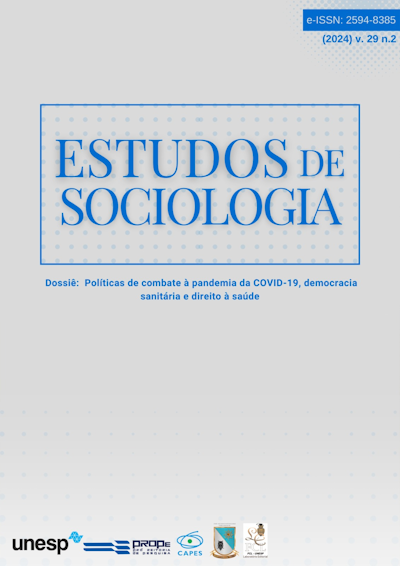The careers of chloroquine and hydroxychloroquine as “miraculous” anti-Covid-19 drugs
narratives from France and Brazil
DOI:
https://doi.org/10.52780/res.v29i2.18976Keywords:
Hydroxychloroquine, Social Studies of Science, Scientific Controversies, Drug trajectory, COVID-19Abstract
In early January 2024, a widely publicized article in the journal Biomedicine and Pharmacology estimated that approximately 17,000 COVID-19 patients in France, Italy, Spain, Turkey, and the US died as a result of hydroxychloroquine treatment. The publication of this article is a fitting closure to nearly three years of controversy about the possible use of chloroquine and hydroxychloroquine to treat COVID-19. Repurposed in early 2020 as miracle answers to the COVID-19 pandemic, they had a brief moment of worldwide celebrity, despite the doubts expressed by many experts. Hydroxychloroquine’s career ended in September 2020, when a series of clinical trials showed not only inefficacy to treat COVID-19 but also safety concerns. However, the use of chloroquine and hydroxychloroquine continued in Brazil, where the government continued to promote their use as the first therapeutic choice against COVID-19. Our study outlines the employ of these drugs in France and Brazil. Grounded in the methodology developed by social studies of science, our article reconstructs the trajectories of hydroxychloroquine in France and Brazil. It aims to elucidate the reasons for the Brazilian exception, illuminating the disastrous consequences of the exercise of a monolithic political power and of anti-democratic practices on drug regulation and proposes new reflections on a topic that has been visible in the media and widely discussed in society, but attracted much less attention in the academic sphere.
Downloads
Downloads
Published
How to Cite
Issue
Section
License

À revista Estudos de Sociologia ficam reservados os direitos autorais pertinentes a todos os artigos nela publicados.
Os artigos publicados e as referências citadas na revista Estudos de Sociologia são de inteira responsabilidade de seus autores.
A Estudos de Socilogia utiliza a licença https://creativecommons.org/licenses/by/4.0/ (CC BY), que permite o compartilhamento do artigo com o reconhecimento da autoria.



